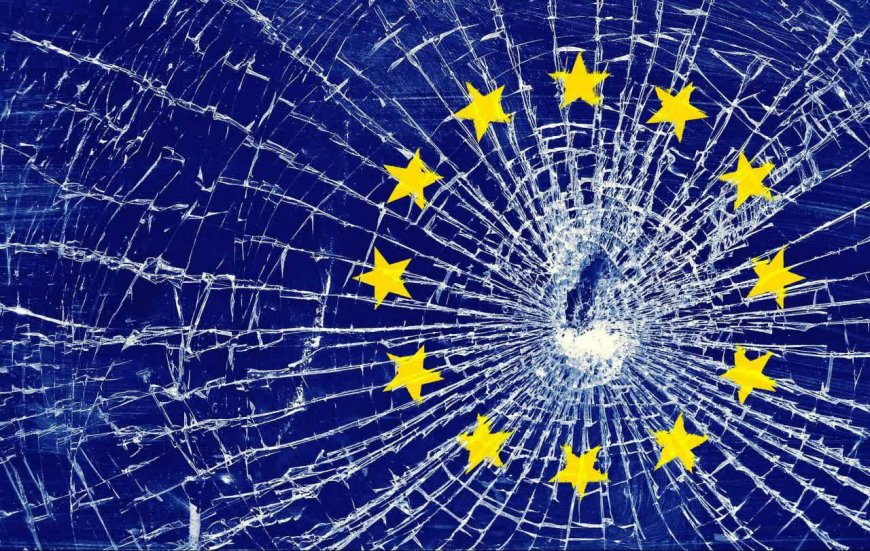The Granada Summit: Shaping the EU's Defense Strategy for an Uncertain Future
The two-day informal meeting of EU leaders in Granada, Spain, has drawn to a close, with the final statement offering a glimpse into the future of the European Union. The road ahead appears to be fraught with challenges and extensive deliberation, particularly from Poland and Hungary.

By: A. Mahdavi
The statement, unanimously approved by all leaders at the conclusion of the European Council meeting held in the city of Andalucia, sets the stage for the Union to embrace new members and reach a consensus on key issues such as immigration, the establishment of a resilient common bloc, and prioritizing defense and competition. These topics have been identified as crucial for the Union's future.
Expansion of the Union
During the Granada meeting, nearly all European leaders emphasized the importance of expanding the European Union, viewing it as a promising opportunity for the Union's future, economic growth, and enhanced security. Supporters of expansion argue that candidate countries should not be solely judged based on their financial resources, but rather a comprehensive assessment that takes into account multiple factors.
Indeed, those in favor of significant expansion firmly believe that candidate countries must undergo internal reforms before joining the Union. European Parliament President Roberta Mtsula has called for a "genuine debate on the Union's absorption capacity" and emphasized the need for internal reforms, characterizing the process as a long-term endeavor.
To incentivize candidate countries to continue their reform efforts, a proposal for gradual integration has gained traction with the support of the French president. Notably, this concept has been welcomed by certain candidate countries, including Albania and Serbia.
Meanwhile, some member states are advocating for changes to voting rules, arguing that the continued use of unanimity on certain matters may pose challenges in decision-making with an expanded membership. Detailed discussions on how the Union should welcome new members are expected to take place during the December summit in Brussels.
Migration
Undoubtedly, immigration remains one of the most complex and contentious issues currently under discussion within the European Union. This topic will feature prominently on the agenda of the upcoming union leaders' meeting.
The European Union is diligently working towards concluding negotiations and adopting a new treaty on migration and asylum before the Commission on Refugees' mandate expires in June next year.
The proposed pact encompasses plans to expedite procedures at the EU's external borders, establish a mechanism for "voluntary and temporary" solidarity, and strengthen the process of repatriating illegal immigrants. Additionally, it aims to transition away from the temporary crisis management mode implemented since the migration crisis of 2015.
However, the migration plan put forth by the European Council failed to garner unanimous support, with Poland and Hungary emerging as staunch opponents. These countries argue that the proposed decisions may jeopardize their future and the future of the Union.
Nonetheless, the EU is now prioritizing addressing the root causes of migration and forging stronger cooperation with countries of origin and transit nations to stem the flow and facilitate returns. While some perceive these actions as lacking in humanitarianism, the European Union remains resolute in its commitment to tackling the issue of illegal immigration. Nevertheless, this matter has the potential to deepen divisions among member states and pose ongoing challenges and crises for Europe.
Defense and Competitiveness
The European Union has undergone a significant shift in its defense strategy since Russia's initial invasion of Ukraine approximately 600 days ago, particularly through arms provision to the conflict-stricken country. European Union funds are also being utilized to bolster ammunition production by European defense companies, as efforts to enhance self-sufficiency in this domain intensify.
Debates surrounding the use of EU funds to procure foreign-made military equipment, the role of the EU's collective defense, and its alignment with NATO have emerged.
Regarding competitiveness, the Granada Declaration affirms that "the EU must reinforce its position as an industrial, technological, and commercial hub, with a particular focus on areas of high added value in which it holds a competitive advantage or can lead."
One crucial aspect pertains to effectively managing China's influence and presence in the supply chains of essential resources, along with the substantial government subsidy programs that enable Chinese manufacturers to produce and supply cheaper goods to the European market.
Furthermore, energy-related concerns and strategies for European companies to attain affordable energy sources remain key focal points for the Union.
The December meeting is poised to be a pivotal gathering for the European Union. The ability to achieve a consensus on the future roadmap offers hope for the Union's future and the cooperation among its member states. Failure to do so may compel member states to confront more significant and pressing challenges, ultimately raising the question of the cost of preserving the Union.













































